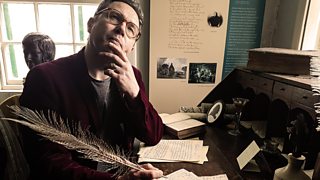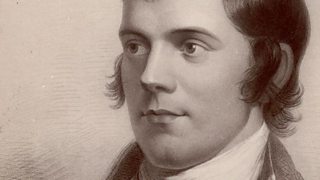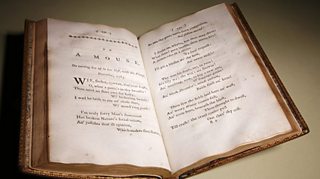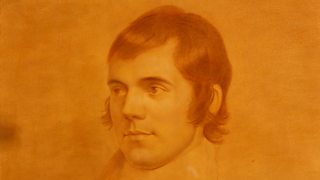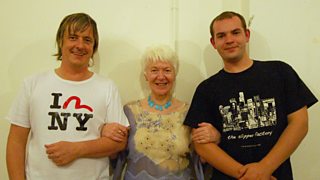How could Robert Burns have considered a career in the Caribbean slave trade?
Poet Robert Burns was a man of contradictions. He loved women, but exploited them; he was a firebrand republican and a social climbing government employee; and he was a champion of democracy who planned to reap the financial rewards of the Caribbean slave trade.
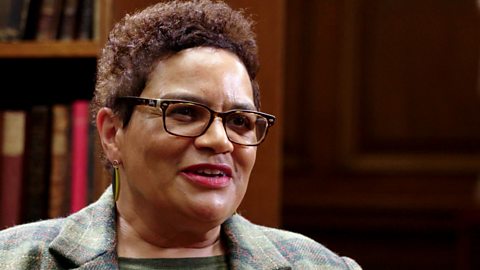
Burns and slavery
How could Burns, a supporter of equality, have considered a role in the slave trade?
In 1786, Robert Burns was looking for an escape route. He couldn't earn enough money working as a farmer in Ayrshire and his home life wasn't much happier.
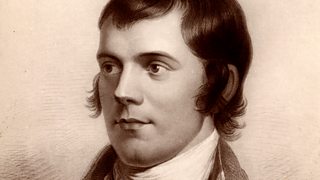
He had one illegitimate daughter with a servant girl, for which he had been publicly castigated by the local church elders, and twins on the way with Jean Armour, the woman who would eventually become his wife. Jean's parents did not care for Robert and despite his promise of marriage they sent her away, out of his reach.
Inside the Mind of Robert Burns reveals how Burns believed the answer to his problems lay in the West Indies. He accepted an offer of employment on a Jamaican plantation in a role he described as "a Negro driver".
Burns was determined to make this fresh start overseas. He booked his passage and wrote On a Scotch Bard Gone to the West Indies as he prepared to depart.
Only the growing success of his book, Poems Chiefly in the Scottish Dialect, prompted him to call a halt to the move.
A society 'complicit' in slavery
In this era, many Scots were making their fortunes in the sugar and tobacco trades, according to Professor Robert Crawford of St Andrews University.
"Quite a lot of people Burns would have known in Ayrshire went across to the West Indies to seek their fortunes," he says. "It wasn't an unusual thing to do. The society [was] complicit with slavery."
But it's a disturbing period for today's Burns fans, particularly as the poet later became known for his egalitarian anthem, A Man's a Man for a' That.
Scots Makar, Jackie Kay, is among those troubled by Burns' acceptance of the Jamaican job.
"I like to think that had he ever gone, he would have turned straight back once he'd realised what it involved," she says. "I can't reconcile my version of Burns in my head with a man that would have comfortably been an overseer."
Robert Burns is now remembered as a great democrat, a man who wrote of the worth of all people, but this period in his early life suggests it was not always the case.
On ����ý iPlayer
-
![]()
Inside the Mind of Robert Burns
Writer Alan Bissett explores the complex brain of Robert Burns.
Latest features from ����ý Scotland
-
![]()
'Wild swimming helps me process the grief of losing my son'
The benefits of cold water therapy.
-
![]()
Winter adventures are appealing, but an expert advises caution
Trips in winter require particular knowledge and skills.
-
![]()
The rescuers: Why volunteers risk their lives in mountain emergencies
Landward meets members of the Cairngorm Mountain Rescue Team.
-
![]()
‘Look for the light’ – practical tips to help you through another winter with SAD
Useful advice and tips to combat low moods at this time of year.
-
![]()
How you could be a binge drinker without even knowing
Binge drinking is classed as fewer units than many people may realise.
-
![]()
How chocolate biscuits and drama classes helped one man leave prison behind
The healing power of creativity.
-
![]()
'When people believe in you, it’s life-changing'
Author Graeme Armstrong revisits the man who helped turn his life around.
-
![]()
The 'breath-taking' display of US birds swept on to British soil
Recent storms have brought rare birds to our shores.
-
![]()
Six things we learned about Alan Cumming on Take the Floor (Spoiler: includes accordions)
The actor spoke to Take the Floor's Gary Innes.
-
![]()
How street gangs trap young men in a dangerous cycle of violence
The almost inescapable pull of life in a gang.
-
![]()
Why stylist Gok Wan believes there's no such thing as bad fashion
The fashion expert says we should stop following rules and do what feels right.
-
![]()
Is sending a CV still the right way to apply for a job?
They've been central to job applications for years, but are they worth it?
